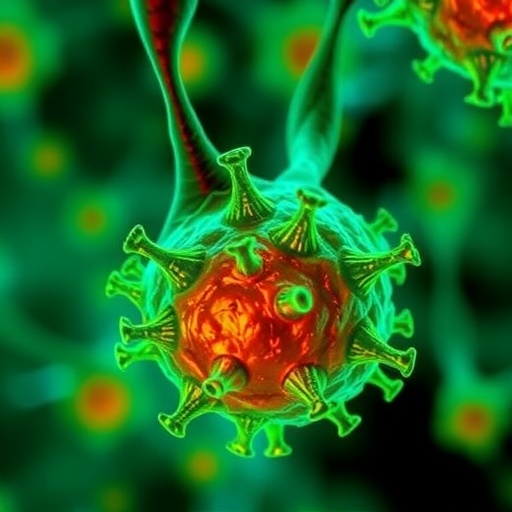The University of Texas at Arlington (UTA) has embarked on an ambitious research initiative, backed by a substantial $1.84 million federal grant, to unravel the complex mechanisms underlying the human immune system’s defense responses—especially when these responses malfunction and contribute to disease. This five-year investigation will be conducted primarily within UTA’s cutting-edge Proteomics Lab, headed by Dr. Saiful Chowdhury, an associate professor of chemistry and biochemistry. Dr. Chowdhury’s lab is internationally recognized for pioneering proteomic technologies that shed light on the molecular underpinnings of inflammation, a biological process that lies at the heart of many chronic diseases, including cancer.
Inflammation, while essential for protecting the body against infections and injury, can sometimes spiral out of control, leading to tissue damage and a spectrum of pathologies. The research at UTA seeks to map the precise molecular dialogue occurring between proteins during these immune responses. By doing so, Dr. Chowdhury’s team aims to chart a detailed “blueprint” of immune protein interactions that govern both normal defense functions and detrimental inflammatory states. Understanding these pathways at a granular level holds the promise of uncovering novel targets for drugs that can selectively mitigate harmful inflammation without compromising the immune system’s ability to fight infections.
Central to this initiative is the utilization of advanced proteomics technologies, which provide a panoramic view of protein interactions within cells. One particularly innovative approach employed by the team is dual cleavable crosslinking, a chemical technique that stabilizes protein complexes by linking them with specialized molecular “connectors.” These connectors can then be cleaved precisely in mass spectrometry instruments, allowing the researchers to dissect protein networks and identify interaction sites with remarkable resolution.
Mass spectrometry, a pivotal analytical tool in this research, functions by fragmenting proteins into smaller molecular weights and analyzing their mass-to-charge ratios. This process effectively generates a “molecular fingerprint” for protein complexes, enabling scientists to reconstruct the spatiotemporal architecture of protein interactions within immune cells. This high-resolution mapping is critical for identifying transient or weak associations that traditional biochemical methods often fail to capture.
By stabilizing and characterizing these ephemeral interactions, Dr. Chowdhury’s group can build a more comprehensive model of immune regulation. Their previous studies, published in high-impact journals such as the Journal of the American Society of Mass Spectrometry and Molecular Omics, have already demonstrated the efficacy of these approaches in elucidating the dynamic proteome landscape. These findings not only deepen scientific understanding of immune mechanics but also pave the way for the development of therapeutic interventions that leverage this insight.
Another integral aspect of their work is the combination of chemical biology, state-of-the-art instrumentation, and bioinformatics. By merging these disciplines, the research team can decode complex datasets to reveal hidden molecular interactions and post-translational modifications that modulate protein function during immune responses. Such integrative analysis is indispensable for identifying biomarkers that predict disease progression or therapeutic outcomes.
The implications of this research extend beyond fundamental science to the design of smarter, more targeted pharmaceuticals. Current anti-inflammatory drugs often blunt the immune response broadly, leaving patients vulnerable to infections. The insights garnered from UTA’s proteomics research aim to overcome this limitation by enabling the design of drugs that take a more nuanced approach—calibrating the immune response rather than suppressing it outright.
Funding for this impactful project comes from the National Institute of General Medical Sciences (NIGMS), part of the National Institutes of Health (NIH). This endorsement underscores the potential significance of the work in contributing to public health advancements and tackling diseases linked to inflammation, including autoimmune disorders and various forms of cancer.
UTA, a Carnegie R-1 research university located within the vibrant Dallas-Fort Worth metroplex, is celebrating its upcoming 130th anniversary with a surge in scientific innovation. With a diverse student body exceeding 42,700 and over 180 degree programs, UTA stands as a hub for cutting-edge research with a substantial economic and social footprint in Texas and beyond.
Dr. Saiful Chowdhury’s leadership exemplifies the university’s commitment to addressing complex biological questions using multidisciplinary approaches. His team’s focus on proteomics and mass spectrometry signifies a frontier in life sciences research, wherein the molecular intricacies of disease are delineated with unprecedented clarity and precision.
As this research unfolds over the coming years, the scientific community and the public alike can anticipate breakthroughs that redefine how inflammation-related diseases are understood and treated. By illuminating the subtle molecular choreography within immune cells, UTA’s work offers a transformative vision for next-generation therapies that are both effective and safe.
Subject of Research: Proteomics and molecular mechanisms of immune defense and inflammation.
Article Title: Not specified.
News Publication Date: Not specified.
Web References: http://dx.doi.org/10.1021/jasms.4c00398
References: Published findings available in the Journal of the American Society of Mass Spectrometry and Molecular Omics.
Image Credits: UTA
Keywords
Chemistry, Physical sciences, Mass spectrometry, Proteomics, Biochemistry, Proteins




